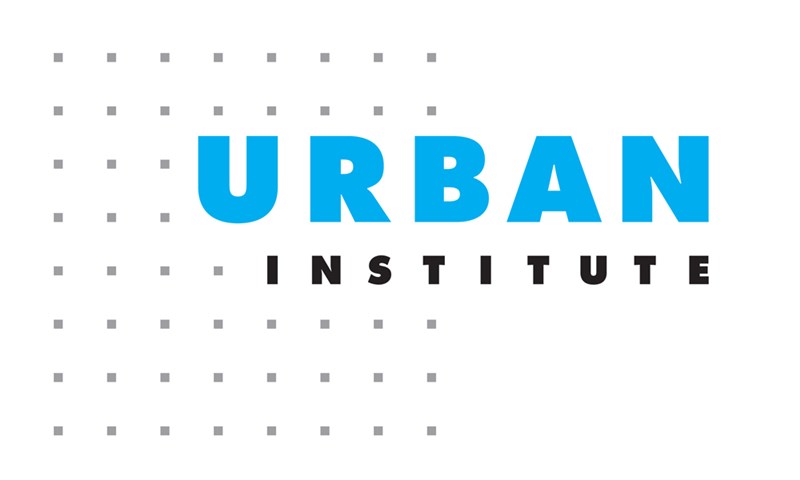.jpg)
2016 Pre-Conference Workshop
Winners and Losers in Public Policy:
Strengthening Distributional Analyses and Microsimulation Models
Wednesday, November 2, 2016
Washington, D.C.
Thank you to our workshop organizers, Urban Institute and International Microsimulation Association:


About the Workshop
Political campaigns and policy debates often feature claims about which groups will benefit from various policy alternatives and which will do worse. Projections about how tax proposals would hit the top 10 percent of taxpayers, how Social Security changes would affect the bottom fifth of beneficiaries, or how much health reforms would shrink the number of uninsured Americans can shape public opinion and influence policy decisions. These distributional analyses usually come from microsimulation models, which are playing increasingly important roles in policy development. Yet, their complexity often renders them black boxes, sometimes raising doubts about the validity of their forecasts.
This workshop pulls back the curtain on microsimulation models, exploring their capabilities, strengths, and limitations for public policy analysis. Sessions will highlight state-of-the-art microsimulation techniques, new data sources, and findings from recent studies evaluating proposed tax, health care, income maintenance, and social insurance reforms. Information shared will sharpen the skills of experienced microsimulation modelers and help attendees with more limited microsimulation exposure become better consumers of distributional analysis. The opportunity for feedback from policymakers and advocates can help modelers conduct more relevant analysis and present their findings in ways that can best inform policy debates.
Registration Information
Registration for this workshop is now open. There is a separate registration fee to attend.
- If you are registering for the pre-conference workshop AND the 2016 APPAM Fall Research Conference, please use the online registration system by clicking here.
- If you are registering for the pre-conference workshop only, and not the Fall Research Conference, please contact Meghan Grenda, [email protected]
Workshop Schedule
All Pre-Conference Workshop Events will be held at the Washington Hilton
Welcome and Introductions
11:00 am – 11:40 am
Room: Georgetown (Concourse Level)
Opening speaker: Donald Marron, Institute Fellow and Director of Economic Policy Initiatives, Urban Institute
In conversation with Margot Sanger-Katz, New York Times
Concurrent Sessions
11:50 am – 12:50 pm
Introduction to Microsimulation (recommended for attendees with limited microsimulation experience)
Room: Morgan (Lobby Level)
o Damir Cosic, Urban Institute DYNASIM team
o Linda Giannarelli, Urban Institute TRIM team
o Matt Jensen, Open Source Policy Center, American Enterprise Institute
Behavioral Changes and Taxes and Transfers: a Cross-National Perspective
Room: Kalorama (Lobby Level)
Moderator: Doug Holtz-Eakin, American Action Forum
o Salvador Barrios, European Commission, Mathias Dolls, Centre for European Economic Research, Anamaria Maftei, European Commission, Andreas Peichl, Centre for European Economic Research, Sara Riscado, European Commission, Janos Varga, European Commission, and Christian Wittneben, Centre for European Economic Research: “Dynamic Scoring of Tax Reforms in the EU”
o Ben Page and Joseph Rosenberg, Urban Institute: “Dynamic Analysis of Tax Policy Proposals for the Press and the Public in the US”
Lunch
12:50 pm – 1:15 pm
Rooms: Heights Corridor (Lobby Level)
(Lunch is included in the registration fee for all Pre-Conference Workshop attendees)
Concurrent Sessions
1:15 pm – 2:30 pm
Developments in Health Care in the US: ACA, Medicare Financing, and Tax Interactions
Room: Morgan (Lobby Level)
Moderator: Melissa Favreault, Urban Institute
o Étienne Gaudette and Bryan Tysinger, University of Southern California: “Medical Innovation, Health Policy, and the Future Elderly”
o Laura Hatfield, Harvard University Medical School: “Modeling Insurance Choice for the Medicare Population”
o Matthew Buettgens, Urban Institute: “Exploring Distributional Effects of the Affordable Care Act with HIPSM”
o Daniel Kim, Northeastern University: “Using Microsimulation Models to Estimate Population Health Impacts of Modifying Federal Income Tax Structures”
Poverty and Small Area Analyses
Room: Kalorama (Lobby Level)
Moderator: Trudi Renwick, U.S. Census Bureau
o Shawna Brown, Jackson Chung, Chantal Hicks, Laurie Plager, Statistics Canada: “Using the Social Policy Simulation Model (SPSM) on administrative data”
o Sarah Minton, Urban Institute: “Near-term Anti-Poverty Impacts of Social Policy Changes: An Application of Static Modeling”
o Guy Lacroix, Université Laval: “Projecting the Evolution of Poverty in Canada”
o Karen E. Smith, Barbara A. Butrica, Urban Institute, and Howard M. Iams, Social Security Administration, “The Poverty Status of Older Americans: How You Measure It Matters”
Concurrent Sessions
2:45 pm – 4:00 pm
Long-term Services and Supports in Canada and the US
Room: Morgan (Lobby Level)
Moderator: William Marton, U.S. Department of Health and Human Services
o Chantal Hicks, Kevin Moore, Jennifer Jones, Statistics Canada: “Long-Term Care Projections using the New DYSEM Microsimulation Model from Statistics Canada”
o Pierre-Carl Michaud, HEC Montréal and RAND: “The Demand for Long-Term Care Insurance in Canada”
o Richard W. Johnson, Urban Institute: “Modeling Alternative Financing for Long-Term Services and Supports in the US.”
o Michael C. Wolfson, University of Ottawa: “Population Aging and Fiscal Sustainability in Canada”
Data Quality, Administrative Data, and Microsimulation
Room: Kalorama (Lobby Level)
Moderator: Constance Citro, Committee on National Statistics, National Academies of Sciences, Engineering, and Medicine
o Bruce Meyer, University of Chicago
o John Czajka, Mathematica Policy Research
o Laura Wheaton, Urban Institute
o Joshua Mitchell, U.S. Census Bureau
Refreshment Break
4:00 pm – 4:30 pm
Rooms: Heights Corridor (Lobby Level)
Concurrent Sessions
4:30 pm – 5:45 pm
Microsimulation Models of Cancer Risk, Progression, and Prevention
Room: Morgan (Lobby Level)
Moderator: Laura Hatfield, Harvard University Medical School
o Keiko Asakawa, Bill Flanagan, and Claude Nadeau, Statistics Canada, and Cindy Gauvreau and Saima Memon, Canadian Partnership Against Cancer: “An Introduction to Canadian Cancer Risk Management Model (CRMM)”
o Stavroula A. Chrysanthopoulou, Brown University School of Public Health and University of Massachusetts Medical School: “MILC: A Microsimulation Model of the Natural History of Lung Cancer”
o Michael C. Wolfson, University of Ottawa and Steve Gribble: “Genetic Mixing Model for Estimating the Joint Distribution of Genotypes and Pedigrees for a Representative Canadian Sample Population”
Microsimulation Methods
Room: Kalorama (Lobby Level)
Moderator: Michael Simpson, Congressional Budget Office
o Jean-Dominique Morency and Éric Caron-Malenfant, Statistics Canada: “Demosim: A Policy-Oriented Demographic Microsimulation Tool”
o Kevin Perese, Congressional Budget Office: “Projection and Alignment Methods for Static Microsimulation Models”
o Seuk Ki (Sophie) Shin, Penn Wharton Budget Model: "Marriage and Divorce Algorithm for Microsimulation Models"
Population Aging / Retirement / Wealth
Room: Oak Lawn (Lobby Level)
Moderator: Julie Topoleski, Congressional Budget Office
o Kenneth A. Couch, University of Connecticut, and Gayle L. Reznik, Christopher R. Tamborini, and Howard M. Iams, Social Security Administration: “Longevity Options for Reforming Social Security: A Microsimulation Approach to Retirement Age and Mortality Adjustments”
o Richard J. Morrison and Marvin Avery: “Assessing Incentives for Voluntary Savings: Quantification and Policy Implications”
o David Pattison, Social Security Administration: “Historical Analysis using the Configured Cohort Technique”